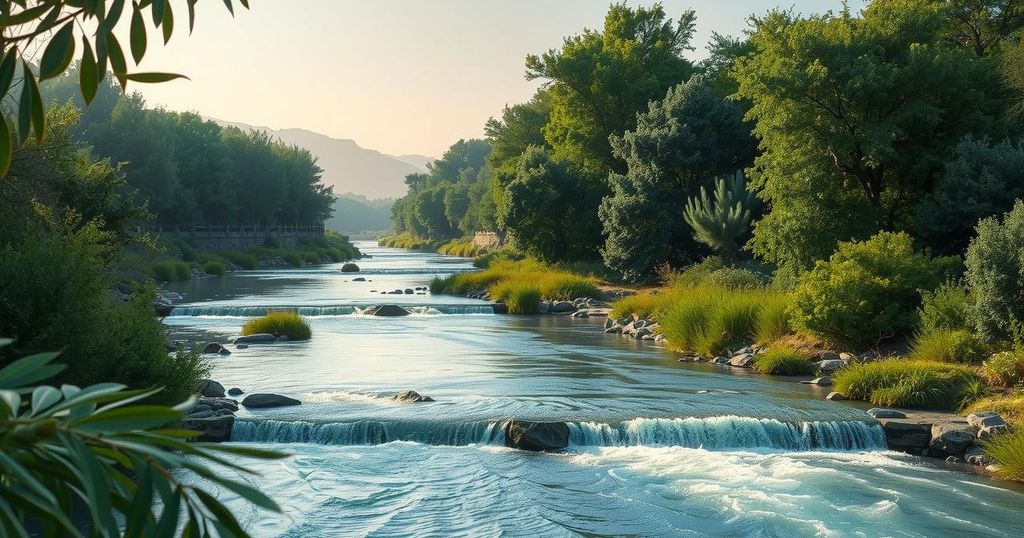Rwanda’s President Kagame agreed with the U.S. on a ceasefire in eastern Congo but did not indicate Rwandan troop withdrawal from Goma. The M23 rebels have escalated violence, overwhelming hospitals. The U.S. called for Security Council action as Goma faces looting and sporadic gunfire post-conflict.
Rwanda’s President Paul Kagame acknowledged an agreement with the U.S. regarding the necessity of a ceasefire in eastern Congo, though he did not suggest that Rwandan troops or the M23 rebels they support would withdraw from Goma. The recent advance of the M23 rebels into this major city has intensified a protracted conflict, overwhelming hospitals with casualties from gunfire, mortar, and shrapnel wounds.
The U.S. has called upon the United Nations Security Council to consider measures aimed at halting the rebel offensive, which has displaced tens of thousands. The city of Goma, which has faced looting amidst fighting, has remained relatively calm in the aftermath of the initial conflict but continues to experience sporadic gunfire.
Kagame mentioned a fruitful discussion with U.S. Secretary of State Marco Rubio, emphasizing the need for a ceasefire and addressing the deeper causes of the ongoing conflict. Rubio expressed Washington’s concerns over the situation, highlighting the complexity rooted in the legacy of the Rwandan genocide and the struggle over Congo’s mineral wealth.
Congo and U.N. peacekeeping officials have reported the presence of Rwandan troops in Goma, yet Rwanda maintains that it is responding to threats from local militias. The U.S. State Department urged respect for sovereign territorial integrity and an immediate ceasefire from all involved parties.
Clashes were reported along the border as rebels aimed to control Goma, a crucial resource hub. Meanwhile, Goma’s residents describe ongoing violence, including explosions and looting, as services like electricity and water are disrupted.
M23 represents the latest in a series of Tutsi-led rebellions with Rwandan backing since the Rwandan genocide. Rwanda claims that militias sheltering in Congo pose risks to both Congolese Tutsis and Rwandan security, while the Congolese government accuses Rwanda of exploiting the conflict to seize minerals. Protests erupted in Kinshasa, where demonstrators targeted foreign embassies, denouncing perceived foreign intervention in their affairs.
The article discusses the recent escalation of the conflict in eastern Congo, particularly focusing on the involvement of Rwandan troops in support of the M23 rebels, who have recently taken control of Goma. It highlights the calls for a ceasefire from the U.S. and the complexities surrounding the longstanding tensions rooted in the aftermath of the Rwandan genocide. Additionally, the humanitarian impact of the conflict on civilians and the mineral wealth at stake are addressed.
In summary, President Kagame’s agreement with the United States on the necessity for a ceasefire underscores the grave situation in Goma amid ongoing violence. The plight of civilians in this conflict, driven by both historical grievances and present tensions surrounding mineral resources, continues to draw international concern and calls for intervention. The complexities of the conflict highlight the need for a comprehensive approach in addressing its root causes.
Original Source: www.voanews.com






